╰ ➤ ɴᴇᴠᴇʀ ʙᴀᴄᴋ ᴅᴏᴡɴ ɴᴇᴠᴇʀ ᴡʜᴀᴛ !!╰ ➤ ʜᴇ/ʜɪᴍ╰ ➤ ꜱᴜᴛꜱ ꜱᴛᴜᴅᴇɴᴛ 「for educational purposes only」
Don't wanna be here? Send us removal request.
Text
彡✎ When Fandom Turns Toxic
(Do toxic fans in some online spaces (e.g. Twitter) make it difficult to become or identify as a fan?)
It honestly baffles me how people in the same fandoms can be so alike yet so disconnected from each other. Aren't we supposed to be on the same page? What happened?

I've got a lot to say about fandoms in general, but being in the K-pop fandom for a while now, I've developed my own take on what goes on there. When you're in a fandom, you run into all sorts of people – most of them are nice, but there's that bunch we call 'toxic.' So, having been through the fan trenches, it makes me wonder: do these toxic fans in some online platforms like Twitter make it tricky for newbies to comfortably join in and be fans? Let's find out!
All for One and One for... My Bias
Most people usually have that one favorite individual they adore within a group, while still supporting the group as a whole. However, there are individuals who exclusively support that single person rather than the entire group. In the K-pop fandom, this is referred to as being a 'solo stan.'
For those that do not know what a solo stan is, it is essentially when someone in the fanbase of an idol group goes all-in for just one member, they call themselves a solo stan or get tagged as one by fellow fans. Solo stans tend to shower their chosen idol with love while not feeling so friendly towards the other group members, giving this term a bit of a negative vibe within the fan community. On a side note, 'solo stan' can also refer to people who are fans of individual idols who aren't part of a group (Evans 2022).
Experienced members of the K-pop community often have a knack for automatically filtering out toxic individuals. However, these toxic fans can create unfavorable first impressions for newcomers interested in joining.
Here is an example of a solo stan's Twitter profile:

Fandom Feuds
In the K-pop community, comparisons between different groups are inevitable, often initiated by passionate fans of those groups. During the early days of K-pop, when the internet was not as prevalent as it is today, fan wars were more than just exchanges of differing opinions. They often escalated into physical confrontations. This phenomenon is what the K-pop community commonly refers to as a 'fan war' (Dhan, 2021). While there is no universally accepted definition of a fan war, it's generally described as a conflict between two fan communities vying for superiority (Urban Dictionary, 2018).
One of the earliest and most well-known instances of fan wars can be traced back to the first generation of K-pop boy groups, specifically H.O.T and Sechskies. These two groups were among the most prominent in their era, boasting substantial and dedicated fan bases. The coveted Daesang, the top prize at year-end awards events, often became a point of contention between the supporters of both groups. At times, fans from these rival factions even gathered, engaging in heated debates, and occasionally leading to physical altercations just before the award ceremonies. In some cases, it was reported that the police had to intervene to de-escalate the situation (Dhan, 2021).

From Admirer to Addict
In the K-pop fandom, fans can be categorized into different levels of dedication. Firstly, there are casual listeners. Next, some wholeheartedly support everything their idols do. Lastly, there are the diehard fans of the group who go to great lengths to express their unwavering devotion to their beloved idols.
These fans within the K-pop community are referred to as 'sasaengs.' The term directly translates to 'personal life' in Korean, and these intruders excel at prying into the private lives of their idols. They engage in such behavior with the ultimate goal of gaining recognition, considering it a point of pride when a celebrity remembers them (Tamondong, 2021).
How do these 'sasaengs' manage to avoid consequences for their actions, even though their identity as sasaengs is widely known? Well, it's often reported that many sasaengs come from privileged backgrounds, affording them the financial resources to relentlessly pursue their idols. It's not unusual to observe them lingering near a K-pop star's agency, their residence, or at restaurants where the idol is dining with family and friends (Tamandong, 2021).

Final Thoughts and Prayers
In a nutshell, when it comes to the question of whether toxic fans in certain online spaces make it tough to embrace and proudly declare your fan status, my answer is a solid 'yes.' Honestly, even I sometimes struggle to casually admit that I'm a K-pop fan because of the stuff I mentioned earlier. While being part of a fandom has its highs and lows, it's clear that these toxic fans can put a damper on the fan experience for others.
References
Dhan 2021, Look back at the “legendary” fanwars between 1st generation Kpop fandoms, KBIZoom, viewed 9 November 2023, <https://kbizoom.com/look-back-at-the-legendary-fanwars-between-1st-generation-kpop-fandoms/>.
Evans, C 2022, From Trainee To Bias: The Big 16 K-Pop Slang Terms To Know, Dictionary, viewed 9 November 2023, <https://www.dictionary.com/e/k-pop-slang/>.
Tamondong, H 2021, What Is A 'Sasaeng'? A Guide To South Korea's Toxic Fan Culture, Cosmopolitan, viewed 9 November 2023, <https://www.cosmo.ph/kloka/kpop/south-korea-sasaeng-fan-toxic-culture-a4575-20210115-lfrm>.
Urban Dictionary 2016, fanwar, Urban Dictionary, viewed 9 November 2023, <https://www.urbandictionary.com/define.php?term=fanwar>.
4 notes
·
View notes
Text
彡✎ From Self-Care to Self-Destruction
What are the dangers of the reliance of social media for public health campaigns?
It's kind of ironic how our parents would tell us to not believe anything we see on the Internet then all of a sudden you see your parents barging into your room saying that this Chinese medicine can cure all your sickness.

Over time, technology has evolved significantly, and the way we obtain our information has also seemingly expanded. In the past, people would solely rely on newspapers or government announcements. With the advent of social media platforms, news can now be sourced from various places. However, verifying the authenticity of such information can be quite challenging, especially when it pertains to public health concerns. Now what are the dangers that we see if we rely heavily on social media for public health campaigns?
Misinformation
Among the many concerns about the information on social media is misinformation. Social media platforms can serve as breeding grounds for the spread of false information. This can lead to confusion and undermine the credibility of public health campaigns.
An example of a public health campaign is during the COVID-19 Pandemic. One of the rumors floating around social media was that drinking water regularly and keeping your mouth moist can protect you from contracting the virus. To elaborate further, the initial posts circulating on social media suggested that it's crucial to maintain constant moisture in our mouths and throats and to consume water every 15 minutes. The underlying idea is that this practice will help direct the virus down the esophagus, with the aim of subjecting it to the corrosive effects of our stomach acid, ultimately neutralizing it (Gorvett 2020).
This rumor was later debunked, indicating that the virus could potentially possess greater resilience. Following the appearance of Mers in Saudi Arabia in 2012, scientists identified that this pathogen, belonging to the coronavirus family and closely related to COVID-19, displayed a significant level of resistance to the moderately weakened stomach acid typically present in individuals who have recently consumed a meal. They found evidence indicating the virus's ability to establish itself within a patient's gastrointestinal system and demonstrated its ease in colonizing intestinal cells (Gorvett 2020).

Disinformation
Disinformation is a term that may not be familiar to everyone. In essence, disinformation is defined as inaccurate information, often related to a nation's military capabilities or strategies. It is typically disseminated by a government or intelligence agency as part of a hostile effort to undermine political stability. Additionally, disinformation is commonly used in a broader context to refer to intentionally deceptive or biased data, altered narratives or facts, or propaganda (Dictionary 2022).
During the COVID-19 pandemic, there was an incident where the European Union (EU) issued a warning about disinformation associated with the pandemic. This disinformation campaign was led by a pro-Kremlin group. The EU's diplomatic service alerted officials to the dissemination of false information by Russian trolls regarding the coronavirus situation in Europe. These individuals exploited the health crisis to foster distrust and division (Wanat et al. 2020).
The disinformation reports included various assertions, such as claims that migrants brought the coronavirus to the region and allegations that the virus is a bio-weapon produced by the United States, the United Kingdom, or China, according to the document. These reports also featured unfounded theories that the virus originated in the United States and had connections to 5G technology (Wanat et al. 2020).

Final Thoughts and Prayers
To sum it up, our journey through the ever-changing world of information on social media reveals a bunch of challenges and pitfalls. It's kind of funny how our parents always told us not to trust everything on the internet, but even they sometimes fall for the fake stuff. This just shows how things have shifted in how we get and handle information in this digital age.
Social media has made it easy for anyone to share news and health info, but it's also become a hotbed for spreading false stuff. Take the COVID-19 pandemic, for instance – there were all these unproven ideas and quick fixes flying around, which just ended up confusing people and messing with public health efforts.
And then there's this term "disinformation," which is like misinformation on steroids. It's all about purposely tricking people, messing with the facts, and spreading propaganda. During the pandemic, some groups were even trying to make things worse by sharing false info to create division and distrust.
So, as we keep surfing through this digital world, it's super important to be smart about the info we come across. We need to question where it's coming from, and who's saying it, and stick with trustworthy sources when it comes to our health. With all the challenges and risks on social media, it's clear that being media-savvy and sharing info responsibly is key to protecting public health and keeping everyone informed and strong.

References:
Dictionary n.d., Kremlin, Dictionary, viewed 29 October 2023, <https://www.dictionary.com/browse/kremlin>.
Dictionary 2022, “Misinformation” vs. “Disinformation”: Get Informed On The Difference, Dictionary, viewed 29 October 2023, <https://www.dictionary.com/e/misinformation-vs-disinformation-get-informed-on-the-difference/>.
Gorvett, Z 2020, A rumour about Covid-19 has been spreading – that drinking water regularly and keeping your mouth moist can protect you. Here BBC Future examines the evidence, BBC, viewed 29 October 2023, <https://www.bbc.com/future/article/20200319-covid-19-will-drinking-water-keep-you-safe-from-coronavirus>.
Wanat et al. 2020, EU warns of ‘pro-Kremlin’ disinfo on coronavirus pandemic, Politico, viewed 29 October 2023, <https://www.politico.eu/article/eu-warns-on-pro-kremlin-disinfo-on-coronavirus-pandemic/>.
1 note
·
View note
Text
彡✎ No Fan Left Behind: K-Pop Stans as Activists for All
Has any fandoms you’re involved in been part of any protest or acts of social activism (e.g. K-pop and Black Lives Matter)?
K-pop: The fandom where fans will take extreme measures to ensure their faves will stay on top. It's honestly shocking what they can do.
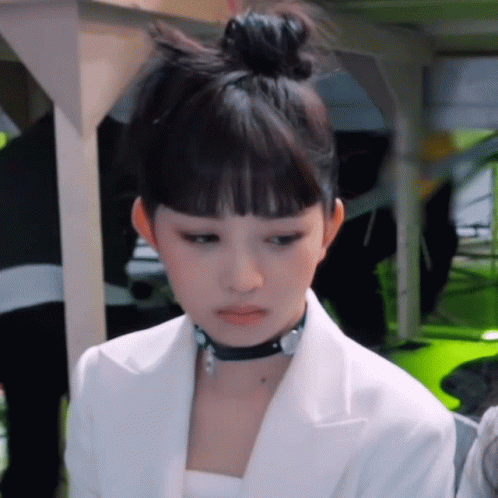
As someone who has and is still in the fandom for many years now, I've witnessed some interesting things that K-pop fans have done in terms of protesting and being involved in social activism on different social media platforms. The sort of protesting or social activism involves mainly cancel culture and boycotting. There are already a few instances of this happening in the K-pop community.
Throwback to when Loona stans boycotted their company
Now you guys might be wondering, what is a Loona? Basically, Loona was a Korean girl group that consisted of 12 members that debuted under BlockBerry Creative, an entertainment company (KProfiles 2023). After numerous comebacks, fans of Loona were hit with the sudden news that one of the members, Chuu, was kicked out of the company. This sparked a lot of confusion and rage from fans who were huge fans of hers.
Chuu had requested an injunction in January 2022 to void the terms of her exclusive contract with BlockBerry Creative. She gave several reasons for her request, including unpaid bills, unbalanced accounts, and a loss of confidence (Han 2023). Ultimately, the injunction was approved, and she left the company. Later on, the rest of the members also filed for termination of their contracts with their current company and left the company.
During the whole situation, Loona fans (called Orbits), decided to boycott the company due to the unfairness that the members of Loona faced. On December 8, 2022, the boycott started, and Loona fans were urged not to buy any records, merchandise, concert tickets, or other LOONA-related products. The group's music and videos could not be streamed or played on any platform, and other actions that would benefit BlockBerry Creative were also prohibited (Koreaboo 2023).
Unfortunately, harassment from BlockBerry Creative doesn't seem to be stopping due to the fact that they are always finding ways to sue the members or stop them from performing on stage again.

Either way BlockBerry Creative could not stop them and they ended up debuting in different groups.
K-pop Fancams and Social Activism
If you've been in the K-pop fandom for quite some time, you'd notice that there are a bunch of these fancams that go around on different social media platforms. I personally see them mostly on Twitter. Essentially, fancams are recordings of famous people or public figures that are made and/or shared by fans. On Twitter, they are particularly well-liked by K-Pop fans. Fancams are most frequently recorded during musical performances when idols are typically dancing and will focus on a certain group member (Fanlore n.d.).
You might be wondering; how can fancams tie back to social activism? Well, there are a few instances where fancams were used as a form of protesting or to even block the spread of false information. During the Black Lives Matter Movement, K-pop fans flooded the iWatch Dallas app with fancams of their favorite artists after the Dallas Police Department requested that people use the app to send videos of "illegal activity from the protests" taking place in the city over the weekend which resulted in overloading the reporting system (Alexander 2020).
Here is an example of a fancam of Seulgi from Red Velvet that was used to block out false information by using relevant hashtags on Twitter:

Hashtag Off-Track
Speaking of hashtags, the K-pop fandom has its fair share of derailing the actual meaning of hashtags on Twitter. We've all clicked on a hashtag only to discover that it was littered with posts that had nothing to do with the hashtag at all. The two main causes of this cacophony are either people grandstanding to gain attention for a trending hashtag or reacting indignantly to whatever they believe the hashtag to be about, which only serves to spread misinformation and obscure the real meaning of the hashtag.
An intentional hashtag derailment is less common. However, white supremacists' attempts to make the phrase "white lives matter" a trendy topic inspired K-pop fans to use the phrase against its proponents. Fans worked tirelessly to fill the White Lives Matter hashtag with fancams, music-related tweets, and tweets about others tweeting about music.
Contrarily, "white lives matter" has continued to trend as a topic for days because of the viral success K-pop fans have garnered for this act. It was briefly presented to me on Twitter as a "K-pop" topic, and it even included the hashtag "#WhiteLifeMatter" as a more popular "music" topic (Romano 2020).
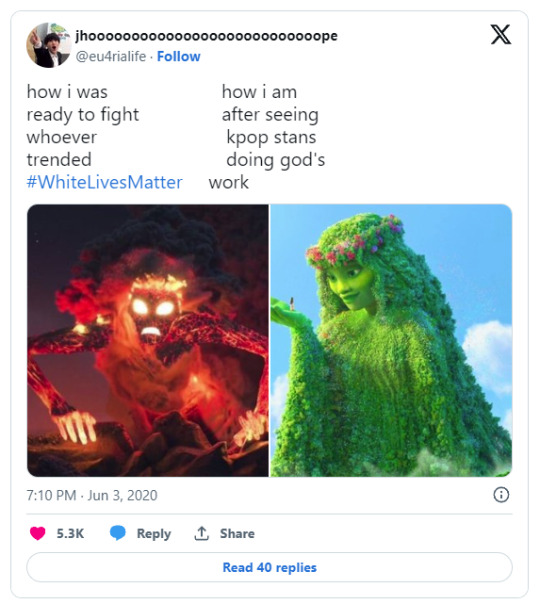
Thoughts and Prayers
In short, unknowingly, the K-Pop fandom has definitely left its mark in terms of fighting for causes such as social activism or partaking in protests to protect their favorites by using their fancams and flooding questionable hashtags on Twitter with their fancams as well.
References
Alexander, J 2020, K-pop stans overwhelm app after Dallas police ask for videos of protesters, The Verge, viewed 16 October 2023, <https://www.theverge.com/2020/6/1/21277423/k-pop-dallas-pd-iwatch-app-flood-review-bomb-surveillance-protests-george-floyd>.
Fanlore n.d., Fancam, Fanlore, viewed 16 October 2023, <https://fanlore.org/wiki/Fancam>.
Han, S 2023, Court rules in favor of former LOONA member Chuu in exclusive contract lawsuit against BlockBerry Creative, AllKpop, viewed 16 October 2023, <https://www.allkpop.com/article/2023/08/court-rules-in-favor-of-former-loona-member-chuu-in-exclusive-contract-lawsuit-against-blockberry-creative>.
Koreaboo 2023, LOONA Fans’ Boycott Against BlockBerry Creative Shows Signs Of Success — Online Shop Has Been Closed Down, Koreaboo, viewed 16 October 2023, <https://www.koreaboo.com/news/loona-fans-boycott-blockberry-creative-shows-signs-success-online-shop-closed/>.
KProfiles 2023, LOONA Members Profile, KProfiles, viewed 16 October 2023, <https://kprofiles.com/loona-members-profile/>.
Romano, A 2020, How K-pop fans are weaponizing the internet for Black Lives Matter, Vox, viewed 16 October 2023, <https://www.vox.com/2020/6/8/21279262/k-pop-fans-black-lives-matter-fancams-youtubers-protest-support>.
4 notes
·
View notes
Text
彡✎ Unpacking Politics, One Meme at a Time
(Do memes (as it is popular in Malaysian politics) provide a useful way of understanding politics?)
Politics: the only arena where you'll find more plot twists, backstabbing, and unexpected surprises than a season finale of your favorite TV show.

We get it – politics can sometimes feel like a maze of jargon and complex issues. However, with the rise of meme culture and its integration into politics, could memes be used to further understand politics and its complexity? (probably).
Behind the Laughs
Before answering the main question, let me hit y'all with some nerd facts about how memes came about. A meme is a cultural informational unit that spreads by imitation. The term, which comes from the Greek word mimema (meaning "imitated"), was coined by a British biologist named Richard Dawkins in 1976 from his work titled "The Selfish Gene" (Rogers 2023). Memes come in a variety of format that ranges from videos to still images.
From LOL to Legislation
In today's day and age of the Internet, memes can be found on all sorts of social media platforms that we use on a daily basis. Whether it be viral videos or yet another funny cat or dog picture like the doge meme. Nowadays, there seems to be an ongoing trend of memes being used in politics. I'm not particularly sure how it is being used, but most of the memes I see about politics are just to poke fun at a specific person or political party.
Now for the million-dollar (or in this case ringgit) question, how did memes suddenly become a thing in the political world? The earliest instance of memes and politics I could find is from the year 2000 during a presidential debate in the United States about then-candidate George W. Bush where he mispronounced the word "internet" as "internets." Four years later, he made the same mistake during a debate with John Kerry when he said, "I hear here’s rumors on the, uh, internets that we’re going to have a draft". After the whole conundrum, the response from netizens was eventful. Thus, making Bush one of the first few political internet memes (Klein 2019).

It seems that after George W. Bush became a trending meme in politics in the United States, I guess you could say he sort of paved the way for birthing memes in politics as we know it today. As far as I know, there are a lot of memes about our politics here in Malaysia that I've come across and it gets pretty entertaining considering how our politics here are.
Meme-laysia
As someone that currently lives in Malaysia, I would say that there are a handful of memes that circulates throughout social media when it is nearing elections or when someone that is part of a political party (or one of our ministers) screws up yet again. The political scene here is quite eventful, to say the least, but that does not mean we cannot laugh about it.
One of the most popular political memes in Malaysia is during 2021 when our then Prime Minister of Malaysia, Muhyiddin Yassin suddenly resigned from his position after only being the Prime Minister for one-and-a-half years. As good of a plot twist as this is, Malaysians took to social media to express their confusion and reaction to this news (Lee 2021).
Here is one of the example:

Upon resigning as Prime Minister, Muhyiddin Yassin will assume the role of interim Prime Minister until a new leader, who commands the majority, is identified (Lee 2021).
Humor and Power
Phew. We're finally getting to the most anticipated part. Do memes provide a useful way of understanding politics? My answer to that is, definitely. Based on research conducted by Kasirye (2019), it is found that political memes do have an effect on providing information about politics.
The study also reveals that political parties employ memes to promote, oppose, and criticize various political issues among the populace. Since the majority of messages are created by political parties and actors to further their objectives, memes are spread through social media to reach the targeted political groups.
Due to memes having a visual nature and their ability to grab people's attention, memes are a good foundation to start understanding politics. Thus, memes are a great method for political engagement that appeals to people's cognitive and extrasensory faculties in order to interact with them and shape their opinions. Humor and sarcasm, on the other hand, are used as persuasive strategies in this awareness-raising technique (Kasirye 2019, p. 51).

Final Thoughts and Prayers
Overall, I do think that memes play a part in politics in terms of understanding what is going on or providing useful information. Memes are funny and people like memes due to the fact that they can be on different social media platforms, whether it be in video or picture format.
References
Kasirye, F 2019, 'THE EFFECTIVENESS OF POLITICAL MEMES AS A FORM OF POLITICAL PARTICIPATION AMONGST MILLENNIALS IN UGANDA', Journal of Education and Social Sciences, vol. 13, issue 1, pp. 50 - 51, viewed 8 October 2023, <https://www.jesoc.com/wp-content/uploads/2019/08/KC13_032.pdf>.
Klein, O 2019, The evolution of political internet memes, Kennedy School Review, viewed 8 October 2023, <https://ksr.hkspublications.org/2019/03/11/the-evolution-of-political-internet-memes/>.
Lee, J 2021, Confused Malaysians make sense of country's political crisis through memes, Mashable, viewed 8 October 2023, <https://sea.mashable.com/culture/17175/confused-malaysians-make-sense-of-countrys-political-crisis-through-memes>.
Rogers, K n.d., meme, Britannica, viewed 7 October 2023, <https://www.britannica.com/topic/meme>.
4 notes
·
View notes
Text
彡✎ Is Blogging Still a Thing, or Did It Get Lost in MySpace? ("Is blogging still relevant in the age of TikToks and Instagram?")
Every time I go on social media platforms like Twitter or Tumblr, I can post the most trauma-dumping content to ever exist, or even post the funniest memes. This image is all I could think about in regard to that.
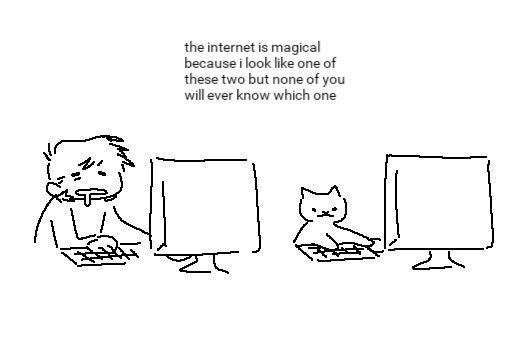
In a world where cat videos go viral and memes have become a form of communication, it's high time we ask: Is blogging still relevant in the age of TikTok and Instagram?
Blogging? Whats that
A blog is defined as an online journal or informational website that displays content in reverse chronological order, with the most recent posts appearing first. It serves as a sort of forum for writers to express their opinions on specific topics (Minaev 2023). Over the years, the relevancy of blog sites such as Tumblr and even Blogspot (now known as Blogger) seems to be declining.
Tumblr, tumbled away
For Tumblr specifically, I noticed that not a lot of people are talking about or even using Tumblr after they banned explicit content on the platform. Honestly, even before they banned adult content, I still never heard anything about Tumblr. However, it was reported that the website experienced its most significant drop in the number of blogs following the ban on adult-oriented content in December 2018, plummeting from 521 million to less than 370 million in just two months (Eira 2023).
To make matters worse, Tumblr does not even appear on any of the social media usage rankings anymore. Most people nowadays would prefer using social media platform giants such as Instagram, TikTok, and YouTube. In short, Tumblr fell off. From that, it seems that Tumblr isn't "the vibe™" anymore with Gen-Zs.
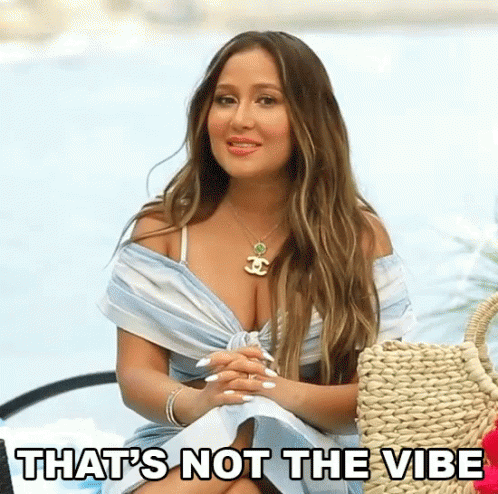
Despite Tumblr not seeing the light of day in today's generation, I do think that blogging in general is still relevant on platforms such as Twitter and its newest competitor, Threads (from Meta). I do think that some, if not, most of the community from Tumblr has migrated to Twitter due to the similarities that the two platforms have.
Twitter, Oops I meant X
Twitter, or you can even call it "X" (don't call it that), has done quite an amazing job at carrying on Tumblr's legacy but through a different format. Twitter is considered as a microblogging platform that combines content creation and instant messaging. It also increases interaction with an online audience by sharing brief remarks using a microblog (Sprout Social 2023). Personally, I think that Twitter is a great platform to receive news, interact with the fandom that I am in, and also see who got canceled (again). I feel that part of the reason why Twitter seems to be more popular than Tumblr is due to the character limit that Twitter has, which is capped at 280 characters per post (without the premium subscription). As someone who suffers from mild ADHD, I would prefer Twitter to Tumblr for that reason. I find that Tumblr could be quite overwhelming to some people, especially those who have just started out. Twitter, on the other hand, is mostly short-formed content, that can also be separated out as a thread.
Here are a few examples that I took from my own Twitter page:
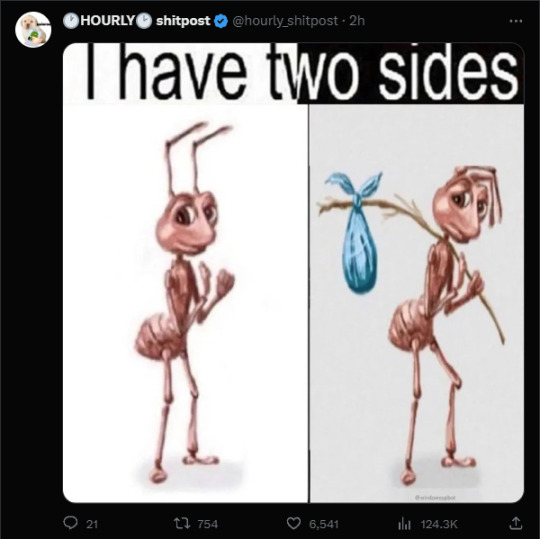

Hanging on by a Thread(s)
Threads (from Meta), is also really similar to Twitter in terms of everything. It is also a microblogging platform. In my honest opinion, I quickly got tired of Threads after a week of using it. I just thought it was quite boring to use and there isn't really anything new other than being able to still use your existing Instagram account to create a Threads account. It just felt really similar to Twitter and I think that might be part of the reason why it is not doing as well. I also feel like I am very comfortable with Twitter and have been a part of Twitter for a long time now (even though it got rebranded to "X"). I still hate the fact that Twitter got rebranded to X. No one can ever make me call it X.
Welcome back to my channel !
Besides Tumblr and Threads, blogging has also evolved into a video format, called vlogging. Vlogging is short for video blogging or video logging (changing the b to v from blogging, very original). Most content creators nowadays would typically post either their daily routine or the adventures they had on platforms like YouTube or TikTok. Each of their videos has a unique style that fits the aesthetic or personal preference of the creator. I find that vlogging is one of the easiest media to consume due to the fact that it is in a video format where I can see their vlogs visually and also from their own perspective.
Final thoughts and prayers
Overall, I do believe that, in some aspects, blogging is still a thing and is also relevant in the ages of TikToks and Instagram. With social media platforms such as Twitter, Threads, YouTube, TikTok, and Tumblr, blogging will remain relevant.

References:
Eira, A 2023, Number of Tumblr blogs in 2022/2023: User Demographics, growth, and revenue, Finances Online, viewed 27 September 2023, <https://financesonline.com/number-of-tumblr-blogs/#:~:text=The%20site%20suffered%20its%20biggest,the%20global%20COVID%2D19%20lockdown>.
Sprout Social 2022, Microblog, Sprout Social, viewed 27 September 2023, <https://sproutsocial.com/glossary/microblog/#:~:text=Microblogging%20is%20a%20combination%20of,offer%20popular%20platforms%20for%20microblogging>.
Minaev, A 2023, What is a blog? - definition of blog, Blogging & Blogger, First Site Guide, viewed 27 September 2023, <https://firstsiteguide.com/what-is-blog/>.
9 notes
·
View notes
